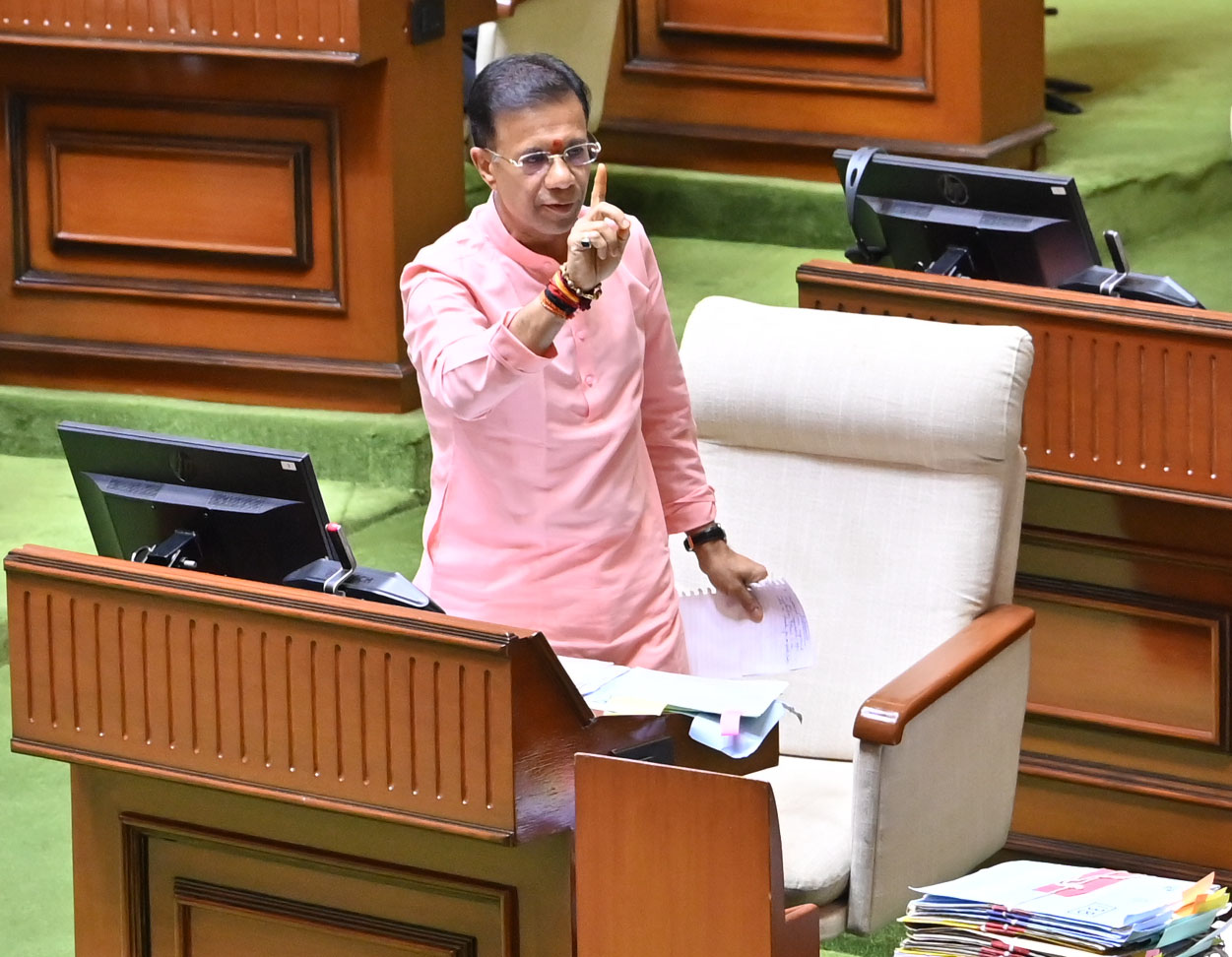Rane says govt will introduce strict laws to curb activities

MAPUSA
Town and Country Planning (TCP) Minister Vishwajit Rane on Thursday admitted on the floor of the Goa Legislative Assembly that illegal plotting and land use violations are rampant across the State.
He assured the House that the government will introduce strict laws to curb the trend, especially in rural and eco-sensitive areas.
“A lot of illegalities are happening in villages. Illegal plots are being created. I will speak to the Chief Minister and bring in a strict law to arrest this trend,” Rane said, while responding to concerns raised by the Opposition in the House.
The Opposition MLAs flagged widespread instances of hill cutting, land filling, and land conversions that are reportedly reshaping Goa’s landscape and displacing local communities.
Leader of Opposition Yuri Alemao said over 1,000 complaints related to illegal land activities remain unresolved, and accused the TCP department of facilitating large-scale land conversions.
“There is fear of land alienation. Goans are scared,” Alemao said, demanding clarity on the status of a new Regional Plan.
Rane responded that a new Regional Plan would be introduced “at the right time” decided by the government.
He also informed the House that under Section 39A of the TCP Act, 950 applications were received, of which 200 are under scrutiny and final conversions have been granted in just 35 cases.
However, the total area converted under this section was not disclosed.
He further stated that approximately 9,000 applications had previously been received under the now-scrapped Section 16B, accounting for the proposed conversion of 1.35 crore sqm of land.
Additionally, 17 lakh sqm of land were converted under Section 17(2), though the matter is currently sub-judice.
RGP MLA Borkar raised specific concerns about land misuse in Curca, Batim and Bambolim areas of his constituency, including ongoing hill cutting under Survey No 94/1 in Bambolim.
He asked whether the TCP would revoke permissions in such cases.
Rane assured that no conversions would be permitted in critical and environmentally sensitive zones, including those highlighted by Borkar, and promised action where necessary.